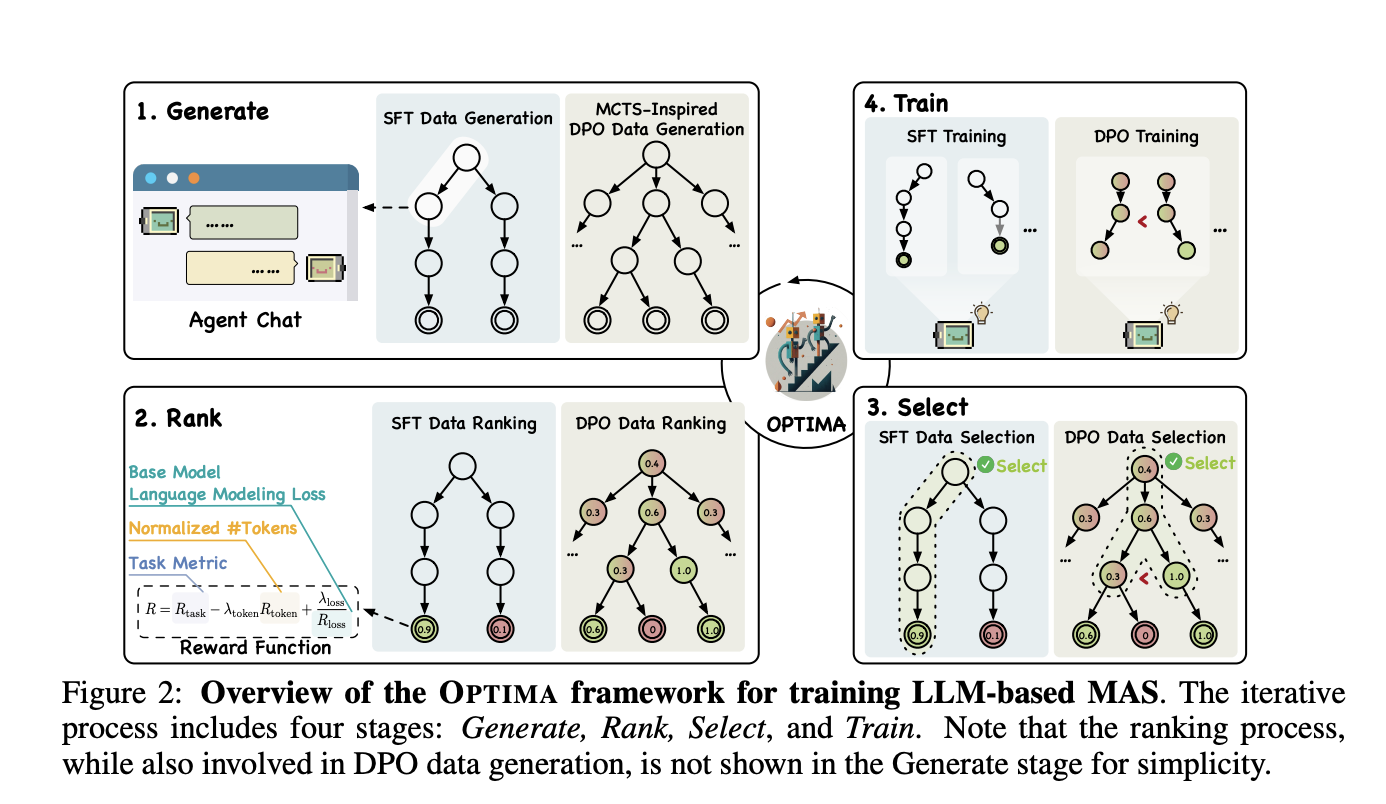
Understanding Large Language Models (LLMs) and Multi-Agent Systems (MAS)
Large Language Models (LLMs) are powerful tools that can perform a variety of tasks, including understanding and generating human language. One exciting application of LLMs is in Multi-Agent Systems (MAS), where multiple LLM-based agents work together to solve problems.
Challenges in Multi-Agent Systems
However, there are two main challenges:
- Efficient Communication: Agents need to communicate effectively without using too many resources.
- Collective Performance: The system must work well as a whole, not just as individual agents.
Current methods often lead to lengthy exchanges that waste time and increase costs.
Current Solutions and Limitations
Some existing methods include:
- LLM-based MAS: Using LLMs for collaborative tasks.
- Iterative Refinement: Techniques like self-reflection to improve individual agents.
While these methods show promise, they do not effectively enhance the performance of multi-agent systems.
Introducing OPTIMA: A New Framework
Researchers from Tsinghua University and Beijing University of Posts and Telecommunications have developed OPTIMA, a framework aimed at improving communication and task efficiency in LLM-based MAS.
How OPTIMA Works
OPTIMA uses a unique approach that includes:
- Iterative Process: Generate, rank, select, and train to optimize performance.
- Balanced Reward Function: Ensures that task performance and communication efficiency are both prioritized.
- Monte Carlo Tree Search Techniques: Helps explore various interaction paths during conversations.
Evaluation and Results
OPTIMA has been tested in two settings: Information Exchange (IE) and Debate. It consistently outperforms existing methods in both effectiveness and efficiency:
- In IE tasks, OPTIMA significantly reduces token usage while improving performance.
- In debate tasks, it shows better results and efficiency compared to traditional methods.
Conclusion and Future Directions
OPTIMA represents a significant advancement in enhancing communication and task performance in LLM-based MAS. Its innovative techniques can lead to more scalable and effective systems. Future research should explore its application in larger models and more complex scenarios.
Get Involved
For more insights, check out the paper and follow us on Twitter, join our Telegram Channel, and connect on LinkedIn. If you appreciate our work, subscribe to our newsletter and join our 50k+ ML SubReddit.
Upcoming Event
RetrieveX – The GenAI Data Retrieval Conference on Oct 17, 2024.
Transform Your Business with AI
Leverage OPTIMA to stay competitive and redefine your operations:
- Identify Automation Opportunities: Find areas in customer interactions that can benefit from AI.
- Define KPIs: Ensure measurable impacts from your AI initiatives.
- Select an AI Solution: Choose tools that fit your needs and allow customization.
- Implement Gradually: Start small, gather data, and expand wisely.
For AI KPI management advice, contact us at hello@itinai.com. Stay updated on AI insights via our Telegram or Twitter.
Discover how AI can enhance your sales processes and customer engagement at itinai.com.



























